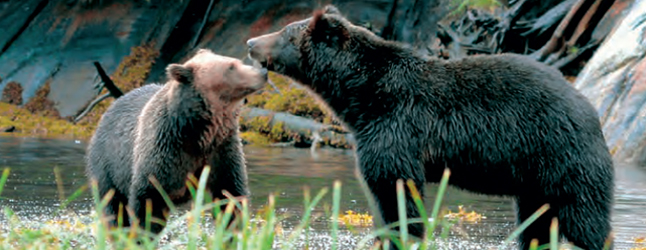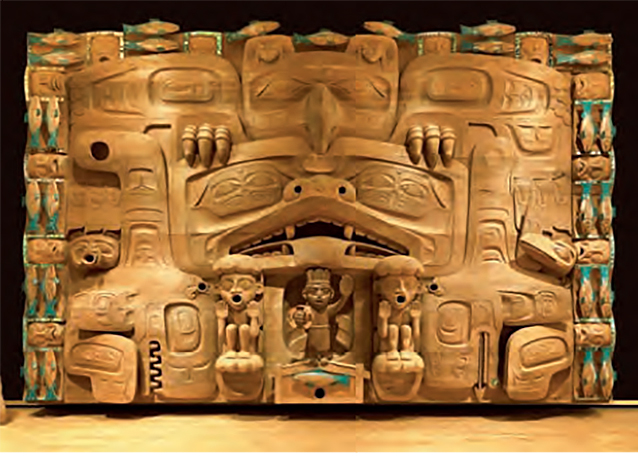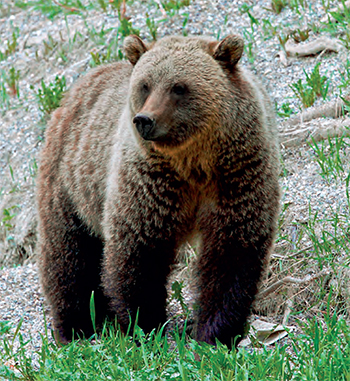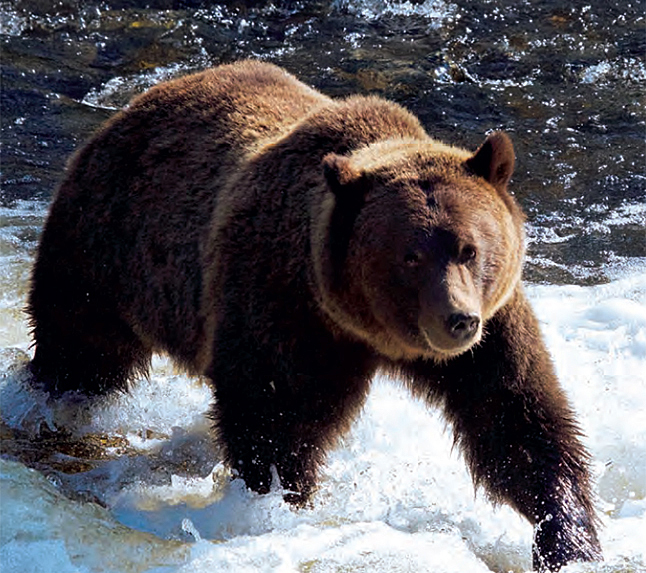
A recently formed organization that seeks to protect grizzly bears says the bears’ long-term survival “is threatened from a loss of habitat and food sources, as well as the government-sanctioned trophy hunt.”
The six-month-old Grizzly Bear Foundation had launched a three-person ‘board of inquiry’ — Michael Audain and Stuart McLaughlin of West Vancouver, and Suzanne Veit of Victoria. They held public hearings in Cranbrook, Prince George, Fort Nelson, Prince Rupert, Vancouver and Victoria, and received advice from many biologists and bear specialists. Their 92-page report contains 19 recommendations directed to all levels of government as well as program priorities for the Grizzly Bear Foundation.
Audain is chairman and major shareholder of the privately held Polygon Homes Ltd, as well as a life-long social activist, art patron and philanthropist. Stuart McLaughlin is President of Grouse Mountain Resort Limited and is a major leader of tourism in BC. Suzanne Veit is a retired deputy minister in the government of British Columbia.

“Grizzly bears arrived in North America from Eurasia as early as 70,000 years ago,” says the Grizzly Bear Foundation’s first report. “Geneticists are still unpicking the details, but it is now thought that various groups arrived during several intervals, some intermingling, some migrating to different parts of the continent at different times.2 Nonetheless, the fact is that grizzly bears survived major extinctions of the Late Pleistocene period and by the early Holocene they ranged as far east as Ontario, Ohio and Kentucky and as far south as Mexico. But environmental conditions fluctuated through the Holocene, when the south and east colonizing fronts of grizzly distribution likely faced inhospitable conditions and succumbed to extirpation (became locally extinct).”
Unless humans take serious steps now to secure the bears’ wilderness home from encroachment by human activities and protect their food sources from the impact of climate change, in a few decades the bears may disappear, chairman Michael Audain said in a statement that accompanied the report.
Audain said the Inquiry was impressed that British Columbians really seem to care about their grizzly bears, which now only have sustainable populations in the mountains of British Columbia and Alaska.
While grizzly hunting is still practiced by a small minority of the BC population as well as a number of foreign hunters, “the vast majority of urban and rural British Columbians would prefer to see the trophy hunt terminated, especially as grizzly bear watching activities are flourishing and attracting a great many international tourists, the report said.

The provincial government says the trophy hunt is sustainable in maintaining a population of around 15,000 grizzly bears, but the inquiry’s members wonder whether the pain and suffering that the bears experience is worth it, especially in terms of the relatively modest revenue that the hunt generates when compared to the growing interest in grizzly-viewing tourism.
“There is nothing wrong with hunting wildlife for food on a sustainable basis and, indeed, hunters have played an important role in conservation activities to maintain this opportunity, but it seems that the great majority of British Columbians will no longer countenance hunters shooting grizzly bears just to mount their heads or pelts on a trophy wall,” McLaughlin said. “As a society, I believe that we have grown beyond that.”
Veit noted that impacts “of habitat loss, insecure food sources, inadequate enforcement of wildlife laws, legal hunting, and the as-yet uncertain impacts of climate change… present major challenges” to the grizzly bears’ survival.
“How we achieve this will be judged by the world,” she said.
Here are the 19 recommendations contained in the report:
Recommendations for Education
- Prepare, publish and distribute material for elementary school children about grizzly bears in BC. Solicit the collaboration of educational experts, bear biologists, illustrators and appropriate school curriculum officials.
- Formulate and deliver a demonstration project to highlight the use of electric fences and bear spray in strategic locations. Do so in partnership with an existing local coexistence organization. Develop and circulate a Best Practices Guide on the basis of this work.
Recommendations for Conservation
- Facilitate a forum with First Nations to consider potential partnership initiatives to secure the status and future of grizzly bears.
- Launch an outreach program to strengthen knowledge‑sharing amongst those engaged in grizzly bear‑focussed activities throughout BC. Augment the knowledge base about what can best secure the future of the province’s grizzly bears. Report back to the public annually about the most effective initiatives across the province.
- Solicit a partnership with a major forestry company. Reach an understanding of the needs and issues the forestry industry faces in terms of access planning. Demonstrate how logging and grizzly bear protection can both be accommodated. Develop and circulate a Best Practices Guide on the basis of this work.
Recommendations for Research
- Appoint a research advisory committee to identify knowledge gaps and formulate future research priorities for the Grizzly Bear Foundation.
- In collaboration with recreation groups, clubs and commercial operators, undertake a study regarding the impact of access to the backcountry and propose strategies for the protection of sensitive grizzly bear habitat.
- Explore the establishment of a BC university‑based institute that will cultivate a repository of grizzly bear research and make it available to the public.
- Conduct a study of potential new grizzly bear viewing opportunities across BC, in collaboration with a bear biologist and a representative of the bear viewing industry.
- Support efforts to address attractants at the local level by producing a Model Bylaw Toolkit that governments can tailor for implementation in their own municipality or region.
Recommendations to the federal government
- Expand the Guardian program to more interested First Nation communities, including supporting them if they wish to develop ecotourism infrastructure such as accommodations.
- Salmon provide extremely important nutrient subsidies to terrestrial plant and animal communities, including grizzly bears. In preparing its implementation plan for the Wild Salmon Policy, we recommend that the Department of Fisheries and Oceans explicitly consider in its allocation formula the nutritional needs of grizzly bears, a keystone species in the predator‑scavenger complex that uses and distributes marine nutrients.
Recommendations to the provincial government
- Terminate all hunting of grizzly bears in BC.
- Regulate the bear viewing industry in consultation with representatives of this industry.
- Renew and update the 1995 British Columbia Grizzly Bear Conservation Strategy, and determine the human and financial resources necessary to implement the Strategy. Include a comprehensive public consultation.
- Strengthen provincial wildlife enforcement capability and increase actions that proactively encourage compliance with wildlife protection laws.
Recommendations to BC local and regional governments
- Institute measures to reduce attractants in public spaces and parks.
- Work to increase the number of communities that are pursuing Bear Smart status.
- Introduce and enforce bylaws regarding attractants.
Please click here to read the foundation’s report.
Please click here to learn more about the Grizzly Bear Foundation.




